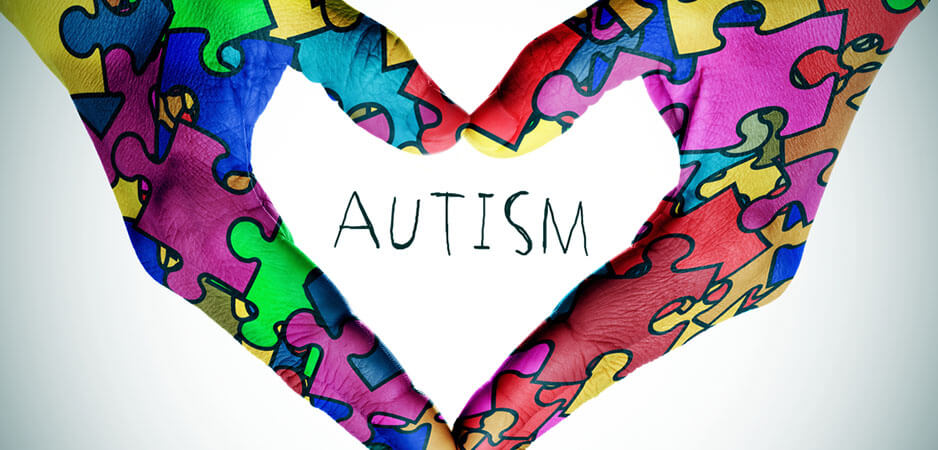On World Autism Day, it’s about time that we stop our inconsiderate behavior toward disabled people.
This year marks one decade since April 2 was declared as World Autism Awareness Day by the United Nations. It is aimed at increasing knowledge about autism in an attempt to advance the rights of those with the condition and to make the world more accommodating to them.
It is important to understand autism spectrum disorder (ASD). This is particularly because the number of individuals who are diagnosed with ASD is increasing every year, even though the exact number is difficult to confirm since most countries do not track or report the rates. Even in the United States, the Centers for Disease Control and Prevention’s latest report on ASD was published in 2016, but it used data collected in 2012, which stated that 1 in 68 children is identified with it. Meanwhile, per 10,000 children, there are 94 and 161 cases of ASD in the United Kingdom and Japan, marking the highest rates of autism in the world.
As of 2013, 21.7 million people worldwide were affected by ASD. While it appears that the condition is more prevalent in developed countries, this does not mean that the figure is lower in developing countries. Rather, due to a lack of awareness and research conducted in those countries, ASD often goes undetected.
By celebrating World Autism Awareness Day every year, the international community has a platform to hold different activities such as seminars, workshops and other events to increase awareness about autism. This would also help in making people understand how they can best accommodate the needs of those with autism, especially in public places.
Cannot Use Public Restrooms
This brings us to the issue of disabled toilets. For example, it may be simple for most people, but when ASD sufferers have to go to public restrooms, children with deficit skills in communication concentration and repetitive behavior find this to be a difficult task.
Skill deficits in the areas of self-help may be a key hurdle for people diagnosed with autism and other developmental disabilities. In fact, children with autism need more help, patience and care mastering restroom etiquette. Potty training an infant child with ASD is often challenging due to communication difficulties. Many children with autism may not aware about being wet or soiled, nor do they understand what these terms mean. When being trained, it may be problematic for them to understand what is being asked of them. It is even hard for them to pick up on body language and learning through imitation of others.
In many cases, individuals who are diagnosed with ASD have certain sensitivities toward sounds, smells and environmental changes. It can be distressing for them to go to public toilets where unpredictable events that they are sensitive to can occur. For instance, the more people in a public restroom, the more sounds are created — such as the opening and closing of doors, flushing and loud hand driers. Managing odors coming from other people can also cause a significant hurdle.
Disabled Facilities
Sometime ago, we were studying at a public library with our friend, Sarah, who is a wheelchair user and is autistic. As with many public places in the UK, the library was disabled-friendly, and facilities such as ramps and disabled toilets were available.
In the midst of our study session, Sarah needed to go to the bathroom. To our surprise, it took her over 30 minutes before she returned with a gloomy face. She told us that she had to queue with a number of non-disabled people to use the disabled toilet, which was the only one in the library. While she joined the queue, a few people gave up their space for her, but others did not budge.
This made us think about whether public disabled toilets can be used arbitrarily without taking into consideration that certain individuals may really need them. While there may be some leeway for disabled restrooms to be used by others, it is important to realize that these facilities are built primarily for those who have difficulty in using normal bathrooms.
For individuals like Sarah, accessing public toilets would not be easy, since often times they are small, narrow and do not have assistive facilities that an individual may need. That is why disabled toilets, with relatively spacious areas and their own washbasin, hand rails and a call for assistance facility, are made available for those with special needs. These restrooms are also built to prevent certain instances whereby a disabled person may slip or fall.
 For autistic individuals, disabled toilets help them to cope with visual sensitivities even if they are not in their own home or other familiar places. Although not all disabled toilets are modeled the same, what lies behind the doors are usually quite similar, and predictability is something that can contribute to a more calming and manageable situation for children with autism. In addition, the separation of disabled restrooms from public toilets means that sudden noises and unexpected events can be minimized in such facilities. Larger spaces that disabled toilets provide are also there to help parents or caregivers assist if necessary.
For autistic individuals, disabled toilets help them to cope with visual sensitivities even if they are not in their own home or other familiar places. Although not all disabled toilets are modeled the same, what lies behind the doors are usually quite similar, and predictability is something that can contribute to a more calming and manageable situation for children with autism. In addition, the separation of disabled restrooms from public toilets means that sudden noises and unexpected events can be minimized in such facilities. Larger spaces that disabled toilets provide are also there to help parents or caregivers assist if necessary.
Unfortunately, the misuse of disabled restrooms happens everywhere. It is not an unusual occurrence where disabled facilities are used by those who do not actually need them. Worse yet, this often takes place when the majority of public areas have only a limited number of disabled toilets. In most cases, there are only one or two stalls at max that are designed for disabled people to use, while there are a good seven or eight toilets for the rest.
Time to Change
The message here is that we must stop our inconsiderate behavior. It’s simple: Let disabled facilities be available for those who really need them. These are not restricted to those who “look disabled.” It is important to keep in mind that many disabilities are invisible. Someone may have balance issues, bad knees or other conditions, including aging and pregnancy, so they may need the holding bars or use higher seats that are in place within disability-accommodating stalls, but are not available in most standard toilets.
Simply because a person is not in a wheelchair does not mean that he or she is not qualified to use disabled toilets. The point is that we need to make sure that those restrooms are always available for those who need them. .
Never take a person’s necessary needs without leaving them with an alternative when we ourselves have many.
The views expressed in this article are the author’s own and do not necessarily reflect Fair Observer’s editorial policy.
Photo Credit: nito / Shutterstock.com
Support Fair Observer
We rely on your support for our independence, diversity and quality.
For more than 10 years, Fair Observer has been free, fair and independent. No billionaire owns us, no advertisers control us. We are a reader-supported nonprofit. Unlike many other publications, we keep our content free for readers regardless of where they live or whether they can afford to pay. We have no paywalls and no ads.
In the post-truth era of fake news, echo chambers and filter bubbles, we publish a plurality of perspectives from around the world. Anyone can publish with us, but everyone goes through a rigorous editorial process. So, you get fact-checked, well-reasoned content instead of noise.
We publish 2,500+ voices from 90+ countries. We also conduct education and training programs
on subjects ranging from digital media and journalism to writing and critical thinking. This
doesn’t come cheap. Servers, editors, trainers and web developers cost
money.
Please consider supporting us on a regular basis as a recurring donor or a
sustaining member.
Will you support FO’s journalism?
We rely on your support for our independence, diversity and quality.






